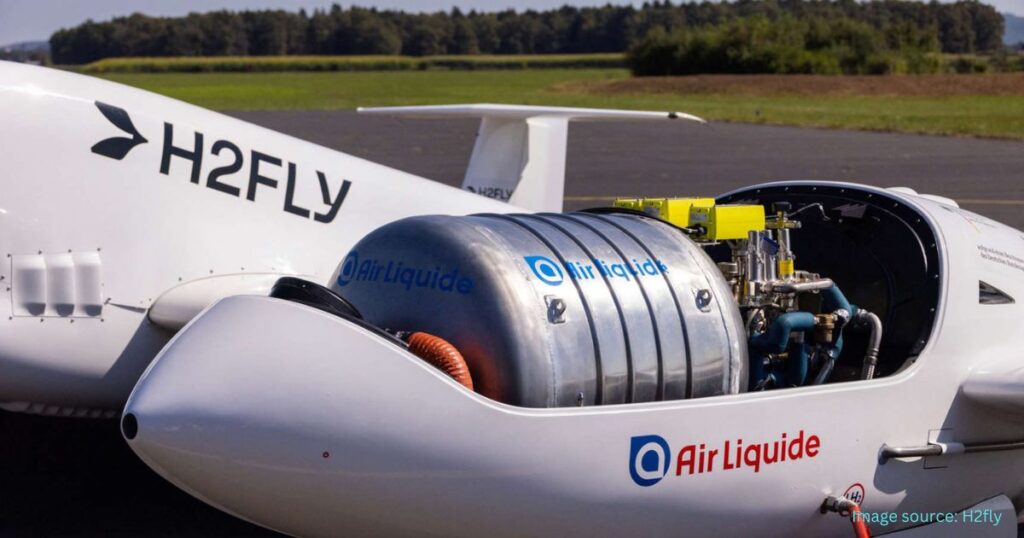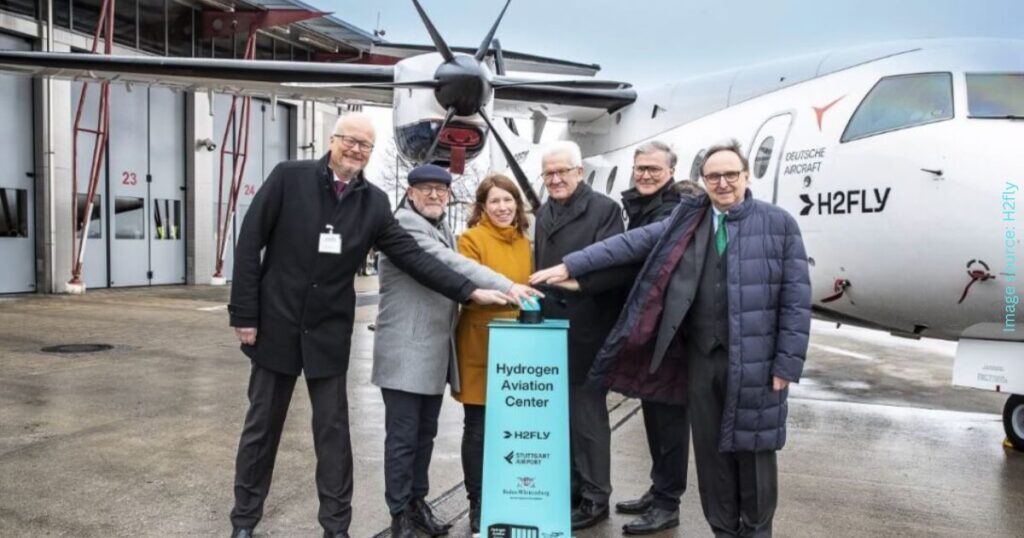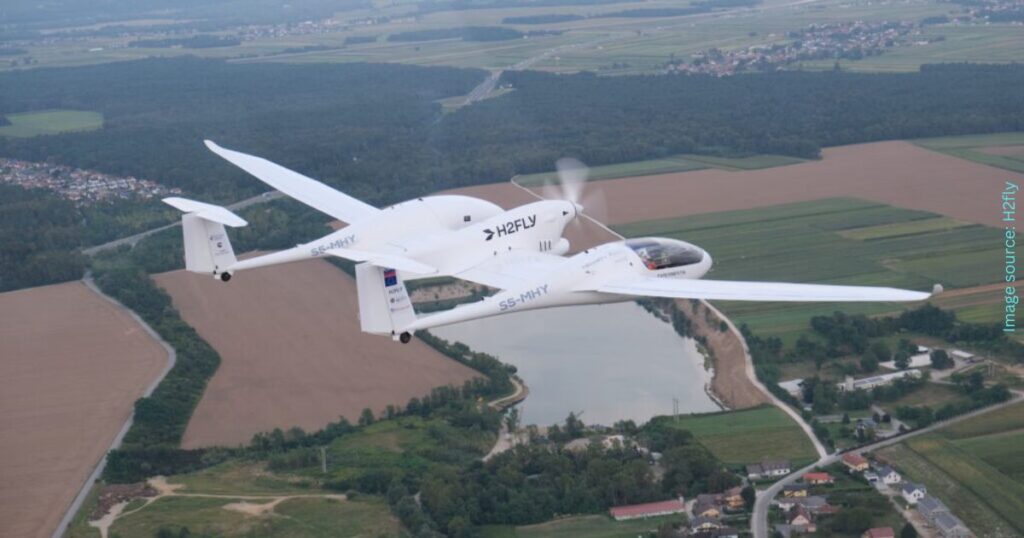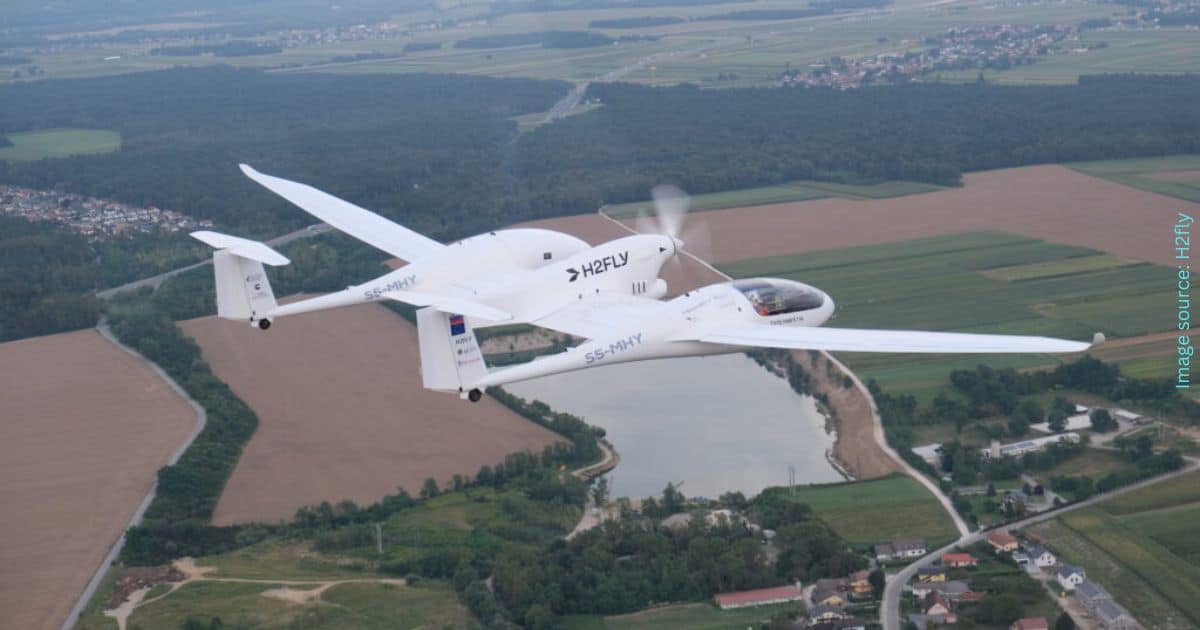Germany Successfully Tested a New Generation Airplanes Powered by Liquid Hydrogen | Electric Technology
The world is moving fast towards renewable energy to reduce emission (CO2).It a great news to unveil new generation airplanes using sustainable renewable energy.
After 10 years of working, Germany-based developer H2Fly has unveiled new technology air plane with a zero-carbon-produced aeroplane and working hard to open a hydrogen Stuttgart aviation centre at Germany‘s Stuttgart airport by the year 2024.
In this article, we will explore how a Germany-based developer introduced the hydrogen-electric power aeroplane and the challenges of emission-free stepping towards emission-free hydrogen power aviation system benefits and opportunities.

Germany Innovation | New technology flight engine:
On September 7, 2023, H2FLY, a Stuttgart, Germany-based company specialising in hydrogen-electric power engine systems for aircraft, They proudly announced a groundbreaking achievement,the successful completion of the world’s inaugural piloted flight of an electric aircraft driven by liquid hydrogen.
The dedicated team at H2FLY executed a series of four meticulously planned flights, all powered by liquid hydrogen. as an integral part of their rigorous multiple-flight testing campaign. One remarkable flight endured for over three hours. These extraordinary flights took place aboard H2FLY’s piloted HY4 demonstrator aircraft.
which featured a state-of-the-art hydrogen-electric fuel cell propulsion system and the innovative utilization of kilometers of cryogenically stored liquid hydrogen to fuel the aircraft.
The outcomes of these test flights have revealed a remarkable revelation:
The replacement of gaseous hydrogen with liquid hydrogen effectively doubles the maximum range of the HY4 aircraft propelling it from 750 kilometres to an impressive 1,500 kilometers. This pivotal milestone is an example of renewable energy and a significant achievement towards Realising the dream of emission-free, lightweight, and long-haul commercial flights
This project called Heaven, implemented with the help of the German Federal Ministry for Economic Affairs and Climate Action (BMWK), the German Federal Ministry for Digital and Transport (BMVD), and the University of Ulm.

Benefits of Hydrogen Power:
Zero Emissions:
Hydrogen power, particularly in fuel cells, produces no harmful emissions. Its combustion or utilisation in fuel cells only generates water vapor making it a clean energy source.
High Energy Density:
Hydrogen has a remarkable energy-to-weight ratio, which makes it efficient for storing and transporting energy over long distances.
Fast Refuelling:
Hydrogen refuelling is relatively quick, akin to traditional fuel refuelling, making it suitable for various transportation applications.
Versatility:
Hydrogen can be employed in a wide range of applications, from fueling vehicles to serving as an energy carrier and assisting in industrial processes.
Reduced Fossil Fuel Dependency:
Hydrogen offers the potential to reduce reliance on fossil fuels, contributing to diversifying energy sources and lowering greenhouse gas emissions.
Benefits of Electric Power:
Efficiency:
Electric motors are renowned for their high efficiency, efficiently converting electrical energy into mechanical work, thereby reducing energy consumption and operational costs.
Environmental Sustainability:
Electric power, primarily when sourced from renewables like solar or wind, enables eco-friendly operation by producing no emissions and contributing to cleaner air and reduced carbon footprints.
Noise Reduction:
Electric vehicles and machinery are generally quieter than their internal combustion engine counterparts, leading to reduced noise pollution, particularly in urban environments.
Lower Maintenance Costs:
Electric vehicles typically have lower maintenance requirements since they have fewer moving parts compared to traditional vehicles. This results in cost savings over the vehicle’s lifespan.
Integration with Energy Grids:
Electric power seamlessly integrates into existing electricity grids, allowing for innovative grid technologies and bidirectional energy flow, facilitating vehicle-to-grid and grid-to-vehicle capabilities.
Domestic Energy Production:
Electric power can be generated domestically, reducing reliance on imported fossil fuels and enhancing energy security.
Regenerative Energy Capture:
Electric vehicles can employ regenerative braking, which captures and stores energy typically lost as heat during braking, thereby improving overall energy efficiency.
After all, H2Fly’s hydrogen and electric power offer valuable advantages depending on specific applications and infrastructural considerations,contributing significantly to environmental sustainability, energy efficiency, and a greener future.
New Hydrogen Aviation Centre:
As per the statement, they plan to establish a hydrogen aviation challenges at Stuttgart Airport in Germany in 2024. H2FLY expressed in a statement, Within a short span of time, hydrogen-electric aircraft are anticipated to have the capability to transport 40 passengers, covering distances of up to 2,000 kilometerscenter (1,240 miles).
Hydrogen-Electric Power Aeroplane challenges:
Here are some challenges that H2Fly has overcome and steps towards the establishment of new technology:
Safety Assurance:
Hydrogen, though a clean and efficient energy carrier, requires rigorous safety protocols due to its flammability and potential leakage risks. Ensuring the safety of hydrogen applications in aviation is a paramount challenge.
Infrastructure Development:
Building the necessary infrastructure for producing, storing, and distributing hydrogen for aviation purposes is a complex and resource-intensive undertaking. Establishing hydrogen supply chains and refuelling infrastructure poses logistical challenges.
Efficiency and Range:
Hydrogen-based aviation systems must demonstrate high efficiency and sufficient range to compete with conventional aircraft. Overcoming technological hurdles to maximizerefueling the energy-to-weight ratio of hydrogen fuel cells is a significant challenge.
Economic viability:
Hydrogen technologies, while promising for sustainable aviation, currently face cost-related challenges. Developing cost-effective production, storage, and distribution methods is crucial for widespread adoption.
Regulatory Frameworks:
Adapting existing aviation regulations and creating new standards to accommodate hydrogen-powered aircraft is a legal and regulatory challenge. Harmonizing safety standards and emissions regulations is a complex process.
Public Acceptance:
Gaining public trust and acceptance for hydrogen-powered aviation is essential. Education and awareness campaigns are necessary to address perceptions and concerns related to safety and environmental impact.
Despite these formidable challenges, the collaboration between H2FLY and Air Liquide represents a bold step forward in the quest for greener aviation solutions. Overcoming these obstacles will require dedication, innovation, and a concerted effort to unlock the full potential of hydrogen in the aviation industry. Ultimately contributing to a more sustainable and environmentally friendly future for air travel.

Conclusion:
In conclusion, Germany’s successfully tested of a new generation of airplanes powered by the innovative combination of liquid hydrogen and electric technology represents a significant milestone in the pursuit of cleaner and more sustainable aviation solutions. This achievement marks a promising step forward in the aviation industry’s ongoing efforts to reduce emissions and embrace eco-friendly alternatives for air travel.







